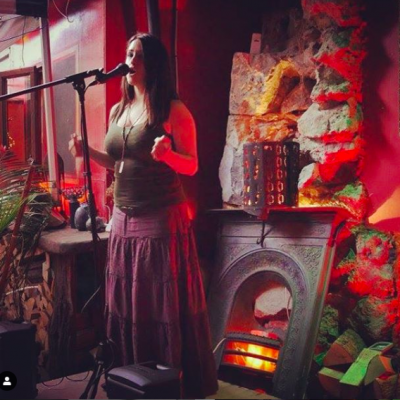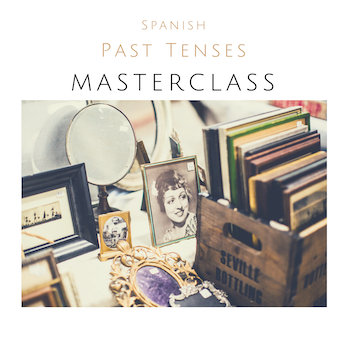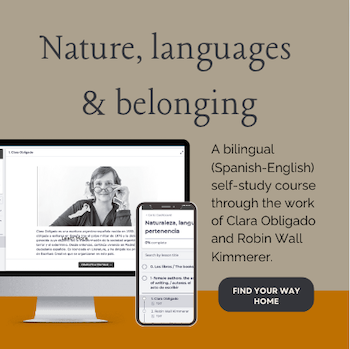Journaling in my mother language led me to write poetry, an activity I loved but which I stopped doing because I was young and influenceable and I believed then that if I couldn’t write good poetry (like the wordsmiths I studied in college), then I should not write at all.
Then, as an English / French learner, I started journaling and that led me to write poetry in a “foreign” language too.
Years after that first incursion in poetry, I learned that we are all artists and that we are all creative and that we have to use up that creativity. As Maya Angelou said: You can‘t use up creativity. The more you use, the more you have.
I also learnt that being creative without purpose or an ending goal is a pleasure by itself and that pleasure is an end goal in itself.
Turning Point in the Language Learning Process: Writing poetry
Writing poetry in my target language, which at the time was English, was what made all the difference in the learning process.
I have never been a very confident speaker but performing with my own poetry in slam poetry events helped me to understand my brain under pressure (speaking in public + speaking in a foreign language), how it manifests, the blocks I experienced and what I can do to overcome them.
Then preparing to perform in these events improved my pronunciation, intonation, modulation and body language in order to create a connection with the audience.
Finally, writing my own poetry created a stronger bond with English, improved my vocabulary and brought more accuracy in my speech. I was able to convey my ideas better and what was better, for me, I found my voice as a poet in English, which was quite different from my Spanish voice.
The ability to communicate with more confidence and accuracy lead, of course, to deeper connections with the people I communicate with, and this, the connection piece, is pure gold.
Power of Words
“Poetry is ordinary language raised to the Nth power. Poetry is boned with ideas, nerved and blooded with emotions, all held together by the delicate, tough skin of words.” — Paul Engle
We all know how words carry more than meaning, they have the power to convey ideas and emotions, to create thoughts and beliefs. Words are tools for communication and when used wrongly or inaccurately, miscommunication.
The act of writing poetry forces you to look up words to find the exact term you need. This search for accuracy is what makes it so powerful. Any poet will tell you that having access to a dictionary and a thesaurus is essential for their craft.
Practise Makes Perfect
“Poetry is emotion put into measure. The emotion must come by nature, but the measure can be acquired by art.” — Thomas Hardy
Nothing can be expressed well without training. The ability to communicate well is a skill, same goes with writing. Expressing emotion is a matter of practice too: one feels an emotion inadvertently but capturing that emotion (with words, movement…) requires practice too.
Expressing well requires practice.
Expressing accurately what we feel is an art.
Calm after the Storm
“Poetry is the spontaneous overflow of powerful feelings: it takes its origin from emotion recollected in tranquillity.” — William Wordsworth
Learning a language through poetry is a powerful learning method because it anchors the language. How? All learning is emotional. In fact, Dr. Antonio Damasio has demonstrated that without emotions, no learning can take place. When we write poetry, the words we put into paper have been “felt” first.
When we recall an event to put it in a poem, that event evokes emotion and this is what helps us anchor the words we search/use in the process of describing it in a poem.
Creation of Rhythm
“I would define … the Poetry of words as The Rhythmical Creation of Beauty.” — Edgar Allan Poe
How the language sounds, the figures of speech that we use in everyday language, the alliterations, the repetitions… all these exist because sound and rhythm also carry meaning and generate emotion in the person we are speaking with.
We want the other person to relate with our message, to generate an emotion in them. We want to connect.
Relatable = Connection
“Poetry … is the revelation of a feeling that the poet believes to be interior and personal which the reader recognizes as his own.” — Salvatore Quasimodo
An image is worth more than a thousand words. And this is what we achieve when we write poetry and get familiar and comfortable using figures of speech in our conversations.
Which sentence is more relatable?
- Me siento cansada. I feel tired,
- Me siento como si me hubiera pasado una apisonadora por encima. I feel as if I had been run over by a bulldozer.
The practice of creating images and searching rhythm and accurate words in your poems unlocks the readiness to use them in regular conversations making the conversation more vibrant and colourful, more natural and relatable for the listener.
If you want to discover your own personal voice in Spanish and get to know your poet self, I invite you to join the self-paced course
Spanish Through Poetry



